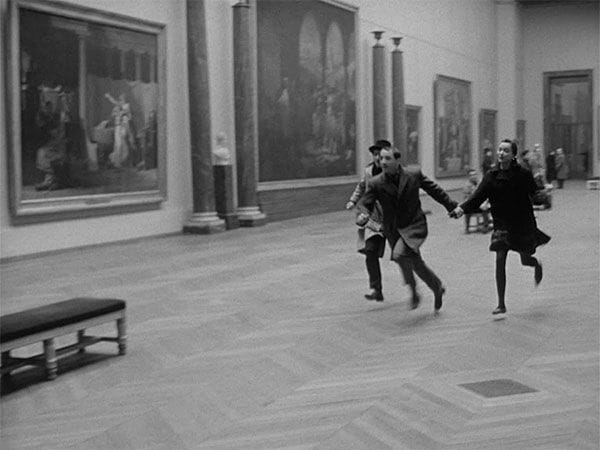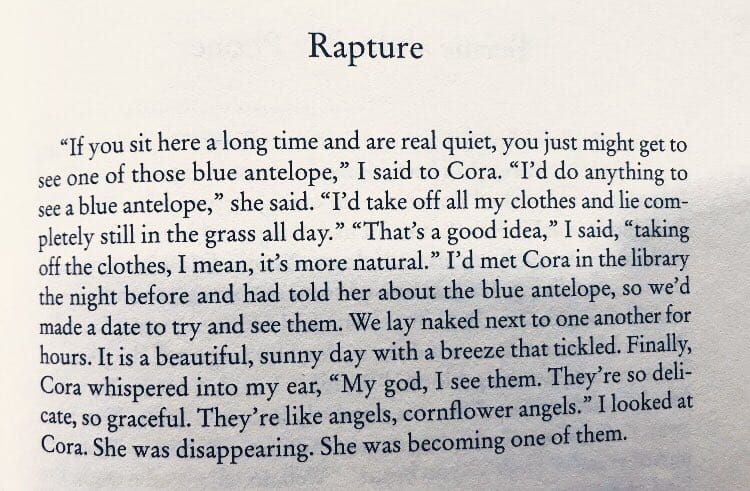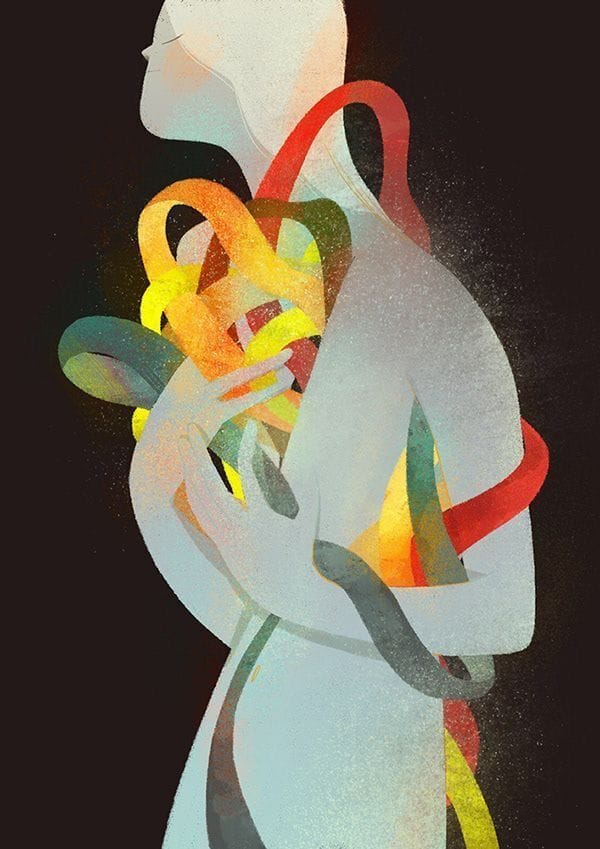- Artifacts of Being
- Posts
- Poems Are Fire for the Cold
Poems Are Fire for the Cold
Poetry heals the wounds inflicted by reason. ― Novalis

I often hear people say that they want to get into poetry but don't know how.
I didn’t either; I kind of stumbled into it. Ten years ago, I was at a dive bar with a few poets, arguing that if life lessons are like nutrients, I want them delivered to me directly—in pill form. No fluff. No meal I have to work through. Give me clear arguments and theses, straight to the system.
What I didn’t realize is that so much of poetry cuts right through the excess, and softens you for reception. And—more than any other art form I know—reaches toward the universal themes of being alive.
Let me share how I got there.
1. Process: the (unintentional) path that led me to loving poetry
read poems curated by regular people (not poets): in 2021, I joined a subreddit for poetry and began casually reading poems that were shared, and prioritized, by regular people. The poems were accessible—and maybe more relatable and enjoyable than the ones I might’ve found in a poetry book.
be selfish: most poems I came across didn’t do anything for me, and I felt no hesitation about moving right on. If the first few lines1 didn’t catch me, I scrolled on.
don’t try to understand:2 I would also sort of glide over sentences that I couldn’t quite fit into my understanding of the rest of the poem. I was just there for the vibes.
|  |
save stuff you like: eventually, whenever a poem caught my attention, I’d find the experience so gripping and rewarding that I’d pursue other poems from the poet, and save them. In a few years, I had a vault of hundreds of poems, and favorite poets, and favorite themes.
2. Poem: Rapture by James Tate
Poems also taught me to surrender to feeling stuff without knowing why I’m feeling stuff. For example, I love this piece3 despite not quite understanding what it’s saying.

3. Quote about how poetry ‘functions’
Sometimes, especially when I don’t know where a poem is going (but the tone or topic is striking), a small door of curiosity is opened, and my own thoughts/emotions/images begin to fill the space.

— Giorgio Agamben
Poetry is not a code to be broken but a way of seeing with the eyes shut. — Linda Pastan
Poetry is a bit like those paintings where you have to relax your eyes to see the image.
And, for me, that practice has lowered the barrier to accessing emotions in many settings.
4. TED Talk: Ethan Hawke on why we turn to art
Eventually, I grew to enjoy poetry so much that I felt I needed permission to like something so seemingly abstract, impractical,4 and academic.
Hawke’s words offered a sigh of relief and redemption.
People don’t spend a lot of time thinking about poetry, right? They have a life to live and they’re not really that concerned with Allen Ginsberg’s poems or anybody’s poems until their father dies. They go to a funeral—you lose a child, somebody breaks your heart. They don’t love you anymore. And all of a sudden, you’re desperate for making sense out of this life. And has anybody ever felt this bad before? How did they come out of this cloud? Or the inverse, something great: you meet somebody and your heart explodes. You love them so much you can’t even see straight. You know, you’re dizzy. Did anybody feel like this? What is happening to me? And that’s when art’s not a luxury. It’s actually sustenance.
5. Concept: having poetry in you
These days, living itself can feel poetic.
I got this idea from Dream On5 by James Tate. I don’t know if this is allowed, but I’m going to rearrange the poem — parts of it — to really highlight what I mean.
Some people go their whole lives
without ever writing a single poem.
They go to baseball games with the greatest of ease
and play a few rounds of golf as if it were nothing.
Investing money is second nature to them.
They contribute to political campaigns
that have absolutely no poetry in them
and promise none for the future.
They sit around the dinner table at night
and pretend as though nothing is missing.
Their children get caught shoplifting at the mall
and no one admits that it is poetry they are missing.
They are smooth-spoken, urbane and witty.
When alone, rare occasion, they stare
into the mirror for hours, bewildered.
There was something they meant to say, but didn’t.
Why is it so difficult for them to see
that, without poetry, their lives are effluvial.
Radiant child,
[the] secret code of everlasting joy:
knot of hope, kernel of desire, pure ordinariness of life,
seeking, through poetry, a benediction
or a bed to lie down on, to connect, reveal,
explore, to imbue meaning on the day's extravagant labor.
What is having poetry in you? My guess: moving through life with a sensitivity to beauty and a propensity for joy, and pleasure, and play, and freedom. I asked ChatGPT, and it understood the assignment: It’s having a kind of inner permeability, letting the world touch you and daring to respond, not with answers necessarily, but with attentiveness, maybe tenderness. |  |
Mary Oliver writes “For poems are not words, after all, but fires for the cold, ropes let down to the lost, something as necessary as bread in the pockets of the hungry.” And she—a child who was abused and escaped to the woods to find food and safety and her pencil—would know.
Lucy


Thank you, poetry, for giving me an opportunity to connect so deeply with my mom—who comes alive with poetry more than anything else. To hear her voice reading lyrically, profoundly, pausing to hold herself back from tears, and shakily telling me why.
1 (I like to think that when Billy Collins wrote "the first line is the DNA of the poem,” he was defending my preferences!)
2 To any certified poetry lovers, I’m so sorry if this is wrong.
3 Does this format even count as a “““poem””””? Who cares!
4 It is difficult to get the news from poems yet men die miserably every day for lack of what is found there. — William Carlos Williams
5 (The poem comes across as critical of people who aren’t ~poetic~ or drawn to poetry, but I promise I’m not coming from that place. I like this poem because it helps me recognize the periods of my own life when it lacks… candlelight and romance and ache and depth.)